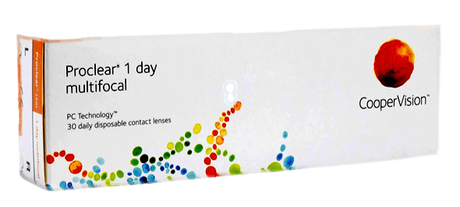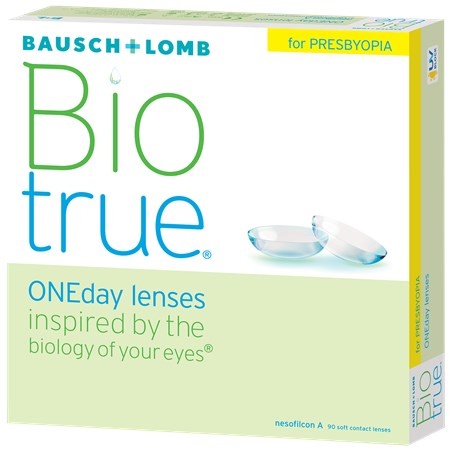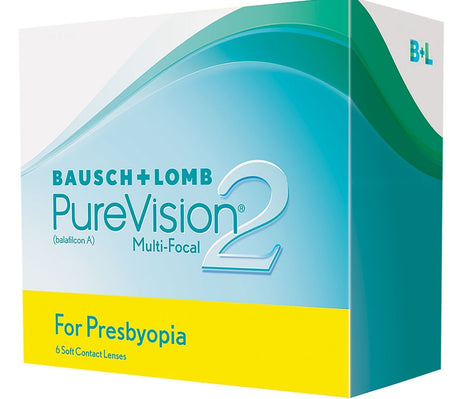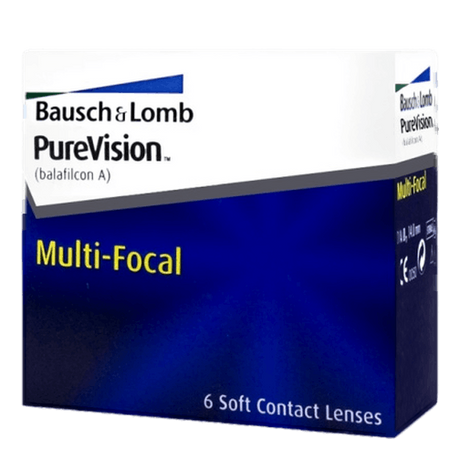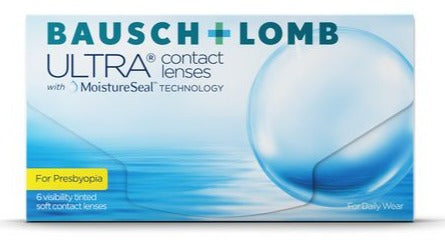What is Presbyopia?
Presbyopia, also known as age-related vision changes, is a natural part of the aging process that typically starts affecting people in their 40s. It is a condition where the eye's lens gradually loses its flexibility, making it more difficult to focus on nearby objects, such as a book or a smartphone.
Symptoms of presbyopia include:
- Difficulty reading small print
- Need to hold texts farther away to read clearly
- Headaches or eye strain after reading or working up close
- Need for better lighting when reading
Presbyopia is a progressive change, and the symptoms can worsen over time. Regular eye exams are important to monitor your eye health and ensure you have the right correction.
Contact Lenses for Presbyopia
Contact lenses are a popular choice for many people with presbyopia, as they offer a discreet and convenient alternative to reading glasses. There are several types of contact lenses designed to address presbyopia:
Monovision Contact Lenses
Monovision involves wearing a contact lens for distance vision in one eye and a lens for near vision in the other eye. The brain learns to adapt and focus with the appropriate eye depending on the task. Monovision can take some time to get used to, but many people find it an effective solution.
Multifocal Contact Lenses
Multifocal contact lenses, also known as progressive contact lenses, have multiple vision zones for distance, intermediate, and near vision in a single lens. They work similarly to progressive glasses and provide a smooth transition between different vision needs.
Bifocal Contact Lenses
Bifocal contact lenses have two distinct vision zones, one for distance and one for near vision. The zones are clearly separated, typically with distance vision at the top and near vision at the bottom of the lens.
Choosing the Right Contact Lenses for Presbyopia
Choosing the right contact lenses for presbyopia depends on several factors, including your lifestyle, vision needs, and personal preferences. An optometrist can help you evaluate your options and find the best solution for you.
When selecting contact lenses for presbyopia, consider the following:
- Your vision prescription and degree of presbyopia
- Your daily activities and vision needs
- How comfortable you are with handling contact lenses
- Your budget and the cost of different lens types
Remember, it may take some time to adjust to new contact lenses, especially if you're using multifocal or monovision lenses. Be patient and work closely with your optometrist to fine-tune your vision and ensure maximum comfort.
Tips for Managing Presbyopia with Contact Lenses
Here are some tips to get the most out of your contact lenses when managing presbyopia:
- Follow your optometrist's instructions carefully for lens care and replacement
- Always have a pair of reading glasses on hand for situations where you may need extra help
- Take regular breaks from close-up work to reduce eye strain
- Maintain a healthy lifestyle, including a balanced diet and adequate sleep, to support overall eye health
Alternatives to Contact Lenses for Presbyopia
While contact lenses are a popular choice for many with presbyopia, there are other alternatives to consider:
Reading Glasses
Reading glasses are a simple and affordable solution for near vision tasks. You can have multiple pairs scattered around the home and office for easy access.
Progressive Glasses
Progressive glasses offer a gradual transition from distance vision to near vision, providing clear vision at all distances. They eliminate the need to switch between multiple pairs of glasses.
Eye Surgery
Procedures like [[brand]]LASIK[[brand]] and [[brand]]PRK[[brand]] cannot correct presbyopia, but there are other surgical options like [[brand]]presbyLASIK[[brand]] and lens replacement that can reduce the reliance on reading glasses or contact lenses.
Regardless of the solution you choose, it's important to work closely with your optometrist to find the best option for your unique needs and lifestyle. With the right contact lenses or glasses, you can continue to enjoy clear vision and an active lifestyle, even as presbyopia starts to affect your eyes.
Remember, presbyopia is a natural part of aging and nothing to be ashamed of. By embracing solutions like contact lenses, you can continue to live life to the fullest and appreciate the world's details, both big and small. Take care of your eyes, and they will take care of you for many years to come.

